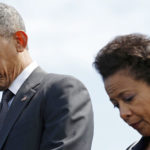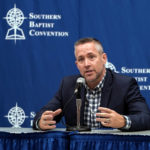WASHINGTON (ABP)—With a March 9 executive order, President Obama made official what many scientists had long anticipated—and many religious conservatives had long feared—lifting his predecessor’s ban on federal funding for embryonic stem-cell research.
“In recent years, when it comes to stem-cell research, rather than furthering discovery, our government has forced what I believe is a false choice between sound science and moral values,” Obama said, in a statement accompanying his executive order.
“In this case, I believe the two are not inconsistent. As a person of faith, I believe we are called to care for each other and work to ease human suffering. I believe we have been given the capacity and will to pursue this research—and the humanity and conscience to do so responsibly.”
He had been widely expected to reverse a policy, first instituted by President Bush 7 1/2 years ago, that severely limited the kinds of embryonic stem-cell “lines” available for federally funded research. But Obama went further, with a memorandum accompanying the executive order, asking officials in his administration to institute policies to ensure that political pressure will not come to bear in the government’s future decisions about science policies.
Potential for new treatments, cures
Scientists have studied embryonic stem cells more than a decade because of their potential to become any one of more than 200 types of tissues in the human body. The research, scientists say, has the potential to produce treatments and even cures for a wide array of injuries and degenerative conditions that are disabling and even fatal.
“At this moment, the full promise of stem-cell research remains unknown, and it should not be overstated. But scientists believe these tiny cells may have the potential to help us understand, and possibly cure, some of our most devastating diseases and conditions,” Obama said.
“To regenerate a severed spinal cord and lift someone from a wheelchair. To spur insulin production and spare a child from a lifetime of needles. To treat Parkinson’s, cancer, heart disease and others that affect millions of Americans and the people who love them.”
However, such stem-cell research has proven highly controversial, because the embryos are destroyed in the process of harvesting the stem cells.
In addition, some scientists have proposed cloning human embryos from patients with certain diseases. Such cloning would prevent rejection of any new tissues or organs grown from the stem cells and used for those patients.
Sign up for our weekly edition and get all our headlines in your inbox on Thursdays
Tantamount to abortion
Religious conservatives—and many non-religious bioethicists—find both prospects ethically troubling. Conservatives, in particular, consider the destruction of five-day-old embryos as tantamount to abortion.
“This is a sad day for the sanctity of all human life in America,” said Richard Land, president of the Southern Baptist Ethics & Religious Liberty Commission .
Land asserted the Obama administration “has declared open season on unborn babies, allowing them to be destroyed for the sole purpose of harvesting their fetal tissue in the hopes of discovering treatments for maladies and diseases affecting older and bigger human beings.”
Supporters of embryonic stem-cell research—and polls consistently show large majorities of the public and of professional biologists in favor of it—counter that it is done on frozen embryos that would otherwise be discarded because they are by-products of fertility treatments.
Stem-cell-research opponents roundly criticized the Obama order, noting that recent advances in creating embryonic-like stem cells from adult tissue in ways that don’t destroy embryos have shown the promise to render the moral quandaries over stem-cell research moot.
“Adult stem cells have been proven to treat every single disease the president mentioned in his speech today, from Parkinson’s to diabetes, heart disease to spinal cord injuries,” said a statement from the conservative Christian group Family Research Council . “The action by the president today will, in effect, allow scientists to create their own guidelines without proper moral restraints.”
The group urged Congress to renew a federal law—known as the Dickey-Wicker Amendment—that bans federal funding for research that destroys or harms human embryos. President Clinton’s administration interpreted the law to ban funding for the destruction of the embryos themselves, but not for funding of research on the resulting lines of stem cells.
Obama’s separate memorandum instructed White House officials to “develop recommendations for presidential action designed to guarantee scientific integrity throughout the executive branch” on science-policy decisions.
President Bush’s administration was regularly criticized by some scientific groups for decisions in science-related areas—such as stem-cell research, global warming, teenage sex education and HIV-prevention efforts—that seemed influenced more by conservative political ideology than the latest research and the scientific community’s consensus on those issues.
Obama said he issued the memorandum to make certain “that in this new administration, we base our public policies on the soundest science; that we appoint scientific advisers based on their credentials and experience, not their politics or ideology; and that we are open and honest with the American people about the science behind our decisions.”
With additional reporting by Tom Strode of Baptist Press














We seek to connect God’s story and God’s people around the world. To learn more about God’s story, click here.
Send comments and feedback to Eric Black, our editor. For comments to be published, please specify “letter to the editor.” Maximum length for publication is 300 words.